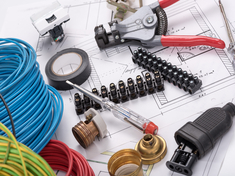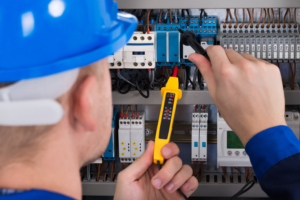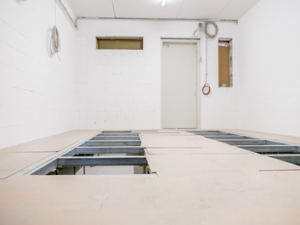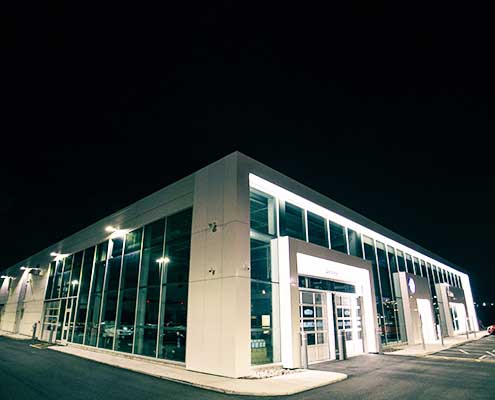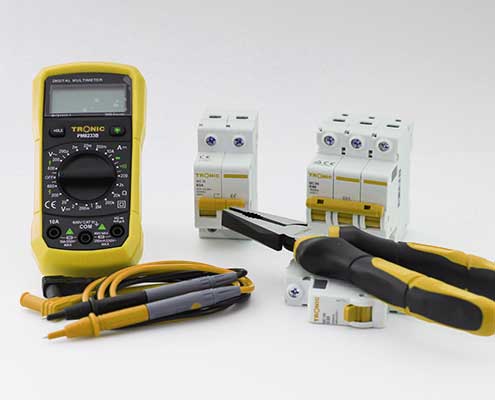Electrical Installer for Technology
______________________________________________________________
What is an Electrical Installer?
When we talk about electrical installations, we are referring to a single electrical supply that is the common source of electricity to various electrical equipment. This electrical source will power outlets and other equipment in order to fulfill a specific purpose.
Adding Power to Your Data with a qualified Electrical Installer
In our information age that is so data-driven, we can often overlook the importance of electrical installations when it comes to moving or upgrading our office spaces. In addition ensuring that work is undertaken but a qualified electrical installer. You may be so concerned about data cabling that you forget to consider the importance of traditional electrical cabling. After all, electricity is the way we power our data. That’s why you need to consider your electrical instillation.
How can an electrical installation by a professional company help me or my business?
There are many benefits to hiring a professional, qualified company to do your electrical installation when moving or upgrading offices. These include:
- Improved electrical efficiency, which can lower your electrical bill and save you money over the long term
- Better design, which increases safety compared to cheap or unprofessional electrical installations which can be a safety hazard.
- Better protection from power outages, which prevents employees from working or can cause digital data to be erased and even lost
- Protection for your office’s expensive technology. A professional electrical instillation will help prevent power surges which can damage your electrical devices.
How do I prepare for an electrical installation?
When preparing for your professional electrical installation, including IT, cabling, and power outlets, it’s important to remember the following:
-
Design for flexibility
The world of work is changing. Thus with people working in increasingly mobile and collaborative manners rather than sitting at a singular desk all day. Meeting areas, break out rooms, and open offices are all a part of a modern office’s design. Therefore, it is important to make sure you have electrical power sockets in multiple areas around your office. Plan to have outlets in your communal meeting space, as well as standard and hot desks. This will allow for a more flexible work space.
-
Allow for extra capacity
In this data-driven information age, we have become addicted to our electrical devices, and often have multiple technological devices that require electricity to power them. You and your employees may not just have a desktop computer anymore, but also a phone, laptop, and tablet that all need to be electrically charged. Therefore, think about adding additional capacity to a workspace. We recommend a minimum of 4 electrical sockets for each desk area, but depending on the situation this can increase to 6-8.
-
Weigh the pros and cons of floor boxes or grommets
A floor box is more difficult to place, since it can be tricky to cut the floor tiles close enough to the edges. If you place the floor box in an open area, then you can have the cabling kept away in the floor box until you are ready to use the cables.
On the other hand, a grommet is a much more precise way to place a cable. The cables can be installed in exact desk locations and in the floor tile. However, with a grommet the cables are not sealed away like with a floor box. Instead, the cables go straight to the desk from the floor, which doesn’t make them the most suitable solution in all cases.
-
Think about any special needs
Not all electrical installation needs are created equal. Certain office spaces might have special electrical requirements and needs. High-traffic areas such as common rooms or meeting rooms might require high powered equipment to handle that spaces electrical needs. This is not just to make sure the electricity is efficient, but also safe. Remember to think about any special electrical needs certain office spaces may need.
-
Plan for the future
The modern workplace is changing fast, and so it’s important to plan for changes to your electrical needs in your office in the future. Think about how you might need to reconfigure a space in the future, and how to plan for those changes. For example, floor box electrical instillations provide more flexibility if you need to reconfigure in the future.
Think about your back up power
Our information age is so digital, that it is important to think about what your back up electrical power sources will be. If your business relies on being connected to the internet in order to generate revenue, then you will want back up power in case there are ever electrical outages.
Thinking about back up power supplies and taking preventative measures such as installing UPS systems can help to keep servers online even in the case of an electrical power outage. Depending on your electrical needs, installing a generator could also be a suitable solution. A generator is a great solution to keep your business powered, especially during long-term electrical outages.
UPS systems: What are they and how do they work?
A UPS system, or an uninterruptible power supply, supports hardware and data cabinets. The hardware is plugged into the UPS, which will supply the power if there is ever an electrical outage in your office or building. The UPS battery will become your power supply during the outage until the original power source is restored. However, how long the UPS can support all your technology depends on the size and number of UPS batteries and how much equipment requires the electrical supply.
What are the benefits of backup generators?
Depending on the size of your office, a backup generator may be a more suitable backup power supply compared to a UPS system. Generators are also a great solution to keep your business up and powered during long-term power outages.
Most generators provide electrical energy to a UPS by converting mechanical energy. Generators are generally externally based. Generators often have a time delay before the start after a power outage. The UPS system will provide the power to electrical devices until the generator gets fired up.
Staying safe during an electrical installation
Safety during an electrical installation is a top priority, which is why you should always hire a professional company for your electrical installation. A qualified company will follow the proper guidelines and procedures to make sure the installation and equipment used is safe.
These standards of safety include the British Standard “Requirements for Electrical Installations. IET Wiring Regulations” or BS 7671.
The work of safety doesn’t end after the installation is complete, however. In addition, you should have regular PAT testing of electrical equipment done. Electrical wiring should also be periodically checked to look for any potential signs of wear and tear. Electrical wiring should especially be checked more frequently in high-traffic areas.
By hiring a qualified, Electrical Installer you can ensure a safe electrical installation that will keep your business powered-up.
For additional electrical articles please visit our main BLOG page here

